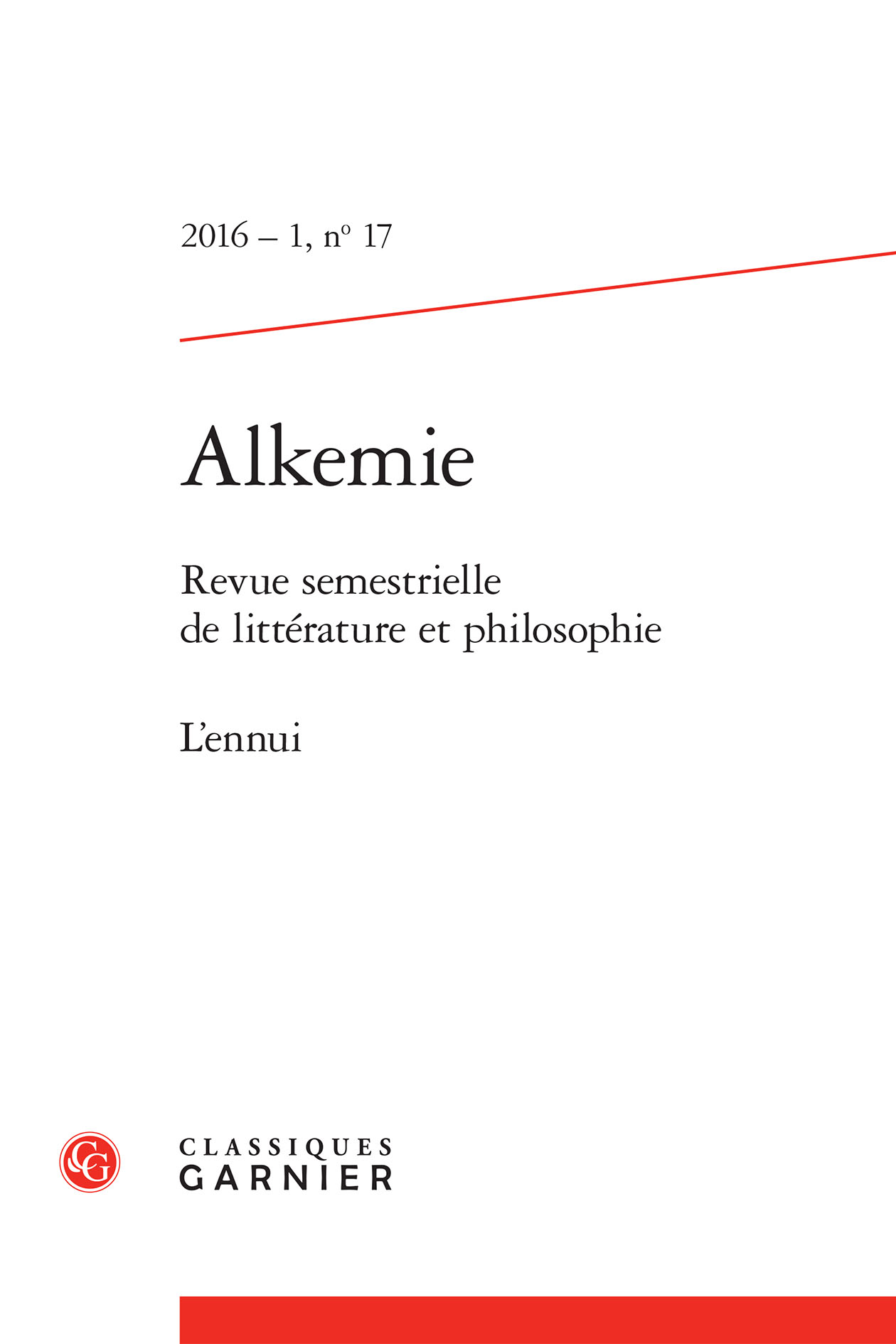Variations sur l’ennui
Variations on boredom
Author(s): Massimo CarloniSubject(s): Philosophy, Language and Literature Studies, Literary Texts
Published by: Classiques Garnier
Summary/Abstract: Dans sa première partie, cet article cherche une définition de l’ennui,suivant l’oeuvre et la pensée de Cioran. En particulier, on distingue l’ennui vulgaire ou mondain de l’ennui fondamental, analysant le rapport entre ceci et le temps, l’espace,le désir. Ensuite on met en évidence quelques traits spécifiques de l’ennui, comme la non-localisation et l’incurabilité.Dans la deuxième partie, on fait un excursus historique-littéraire au sujet de l’ennui,en partant de Sénèque, en passant pour l’acedia médiévale, jusqu’à l’époque moderne, qui commence avec la réflexion de Pascal et continue avec les lettres de Madame du Deffand, pour terminer au dix-huitième siècle, avec Leopardi, Baudelaire et Flaubert. In its first part, this article seeks a definition of boredom, following the work and thought of Cioran. In particular, it considers vulgar or mundane boredom differently from essential boredom, analyzing its relationship with time, space and desire.Then it highlights some specific traits of boredom, such as non-locating and incurability.In the second part, we take an historical-literary excursus of boredom, from Seneca,through the medieval acedia, until modern times, which begins with Pascal’s reflection and continues with the letters of Madame du Deffand, and finally in the eighteenth century, with Leopardi, Baudelaire and Flaubert. Keywords: Cioran, Sénèque, acedia, Pascal, Madame du Deffand, Leopardi,Baudelaire, Flaubert.
Journal: ALKEMIE. Revue semestrielle de littérature et philosophie
- Issue Year: 2016
- Issue No: 17
- Page Range: 179-193
- Page Count: 15
- Language: French
- Content File-PDF

